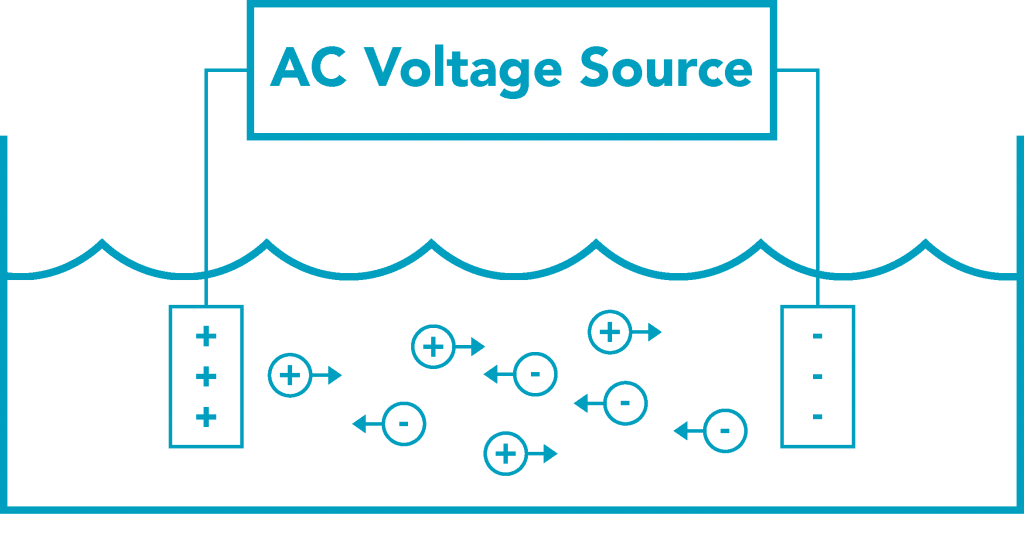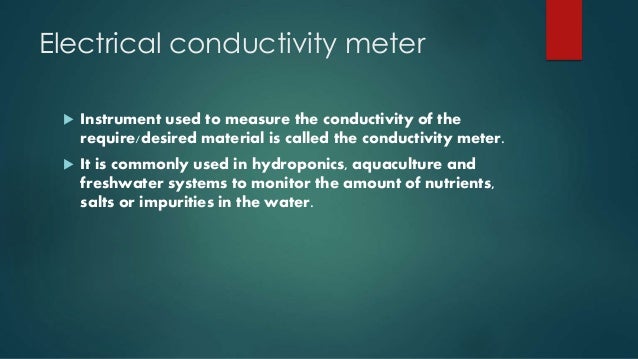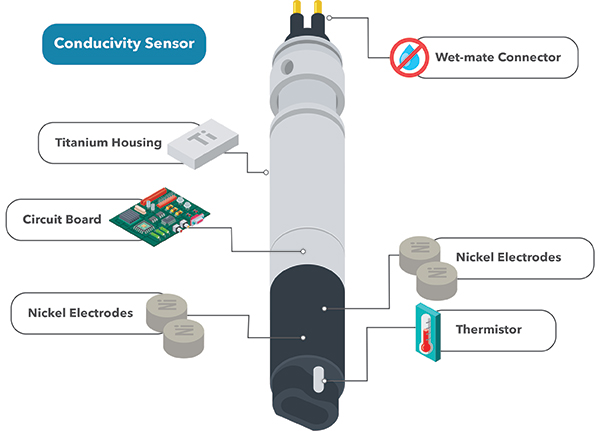A conductivity meter sometimes called electrical conductivity meter water conductivity meter or ec meter measures the ability of a solution or liquid to conduct an electrical current.
Electrical conductivity meter principle.
Two plates are placed in a sample a potential is applied across the plates normally a sine wave voltage.
The utilization of these meters is generally witnessed in water monitoring systems to measure the number of nutrients impurities or salt in freshwater and aquafers in hydroponics.
An electrical conductivity meter ec meter measures the electrical conductivity in a solution it has multiple applications in research and engineering with common usage in hydroponics aquaculture aquaponics and freshwater systems to monitor the amount of nutrients salts or impurities in the water.
Most conductivity measurements are made in aqueous solutions and the ions responsible for the conductivity come from electrolytes dissolved in the water.
In general pure solutions such as distilled water have low conductivity while saline or nutrient rich solutions such as seawater or fertilizers have.
Edge ec hi2003 uses a four ring conductivity probe that allows you to measure samples from very low conductivity to very high conductivity.
Conductivity is a measure of how well a solution conducts electricity.
It is commonly used in hydroponics aquaculture and freshwater systems to monitor the amount of nutrients salts or impurities in the water.
Hanna s edge ec hi2003 can measure conductivity tds and salinity and is a convenient table meter design.
Both the current and the potential are used to calculate the conductance i v.
The conductivity meter a typical conductivity meter applies an alternating current i at an opti mal frequency1 to two active electrodes and measures the potential v.
For example the measurement of product.
Principle by which this instrument measures the electrical conductivity is very simple.
Conductivity measurements are used routinely in many industrial and environmental applications as a fast inexpensive and reliable way of measuring the ionic content in a solution.
An electrical conductivity meter ec meter measures the electrical conductivity in a solution.
Conductivity could in principle be determined using the.
The conductivity meter then uses the conductance and cell con stant to display the conductivity.
To carry a current a solution must contain charged particles or ions.
Electrical conductivity meter is an instrument or a handy device designed to calculate the rate of conductivity of the exterior test material.
Conductivity changes with storage time and temperature.


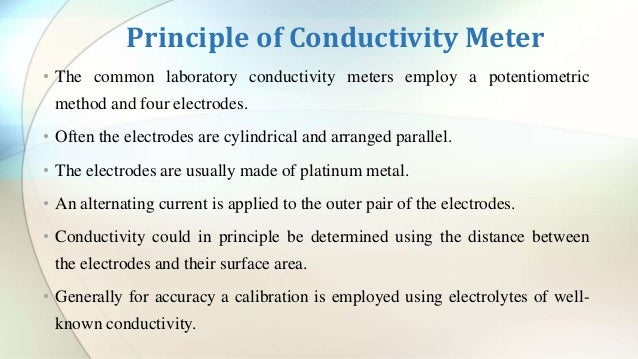
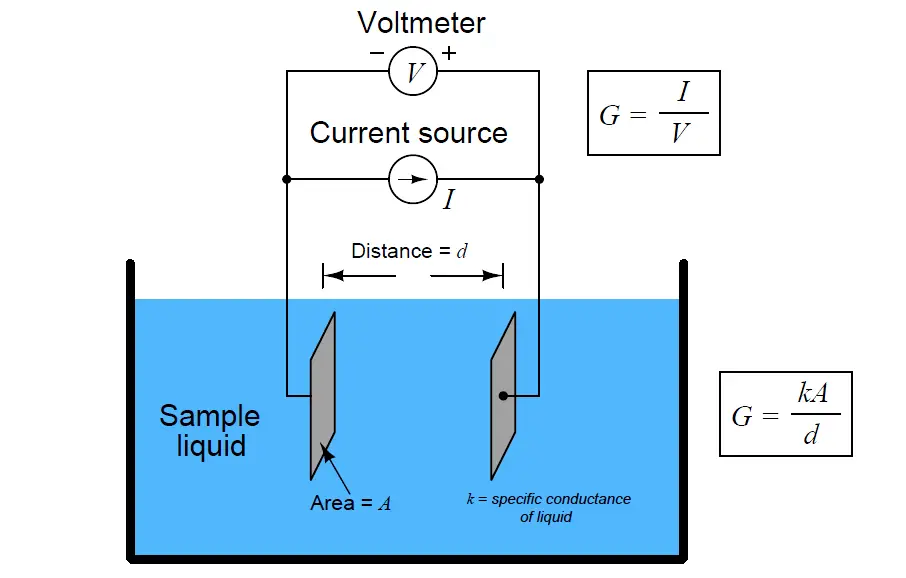
.jpg)
